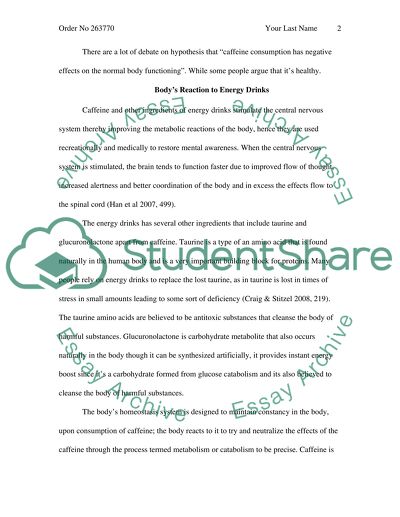Cite this document
(Negative Effects of Caffeine in Energy Drinks on the Human Body Research Paper, n.d.)
Negative Effects of Caffeine in Energy Drinks on the Human Body Research Paper. Retrieved from https://studentshare.org/health-sciences-medicine/1510378-energy-drinks
Negative Effects of Caffeine in Energy Drinks on the Human Body Research Paper. Retrieved from https://studentshare.org/health-sciences-medicine/1510378-energy-drinks
(Negative Effects of Caffeine in Energy Drinks on the Human Body Research Paper)
Negative Effects of Caffeine in Energy Drinks on the Human Body Research Paper. https://studentshare.org/health-sciences-medicine/1510378-energy-drinks.
Negative Effects of Caffeine in Energy Drinks on the Human Body Research Paper. https://studentshare.org/health-sciences-medicine/1510378-energy-drinks.
“Negative Effects of Caffeine in Energy Drinks on the Human Body Research Paper”, n.d. https://studentshare.org/health-sciences-medicine/1510378-energy-drinks.


